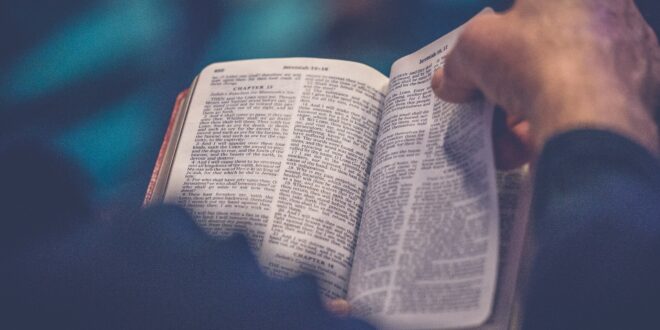By the following authors:
Dr. William Abraham, (Methodist), Dr. Elizabeth Achtemeler, (Union Theological Seminary, Virginia), Mr. William Ball Bentley, Dr. Bill Bright , Mr. Charles Colson *, Professor Robert Destro (Roman Catholic), Rev. Juan Diaz-Vilar, S.J.* (Roman Catholic), The Rev. Augustine DiNoia, O.P. (Roman Catholic), Rev. Avery Dulles, S.J.* (Roman Catholic), The Rev. Joseph Fitzpatrick * (Roman Catholic), Bishop William Frey (Episcopalian), Professor Mary Ann Glendon (Harvard University), Bishop Francis George, OMI* (Roman Catholic), Dr. Os Guinness, Dean Nathan Hatch (Roman Catholic – Notre Dame) Dr. Kent Hill* (Nazarene), Dr. James Hitchcock, Professor Peter Kreeft (Roman Catholic), Rev. Matthew Lamb (Roman Catholic), Dr. Richard Land* (Southern Baptist), Dr. Larry Lewis* (Southern Baptist), Mr. Ralph Martin (Roman Catholic), Dr. Jesse Miranda * (Assemblies of God), Dr. Richard Mouw (Fuller Seminary), Msgr. William Murphy* (Roman Catholic), Rev. Richard Neuhaus* (Roman Catholic), Dr. Mark Noll (Wheaton College), Mr. Michael Novak, Mr. Brian O’Connell* (World Evangelical Fellowship), John Cardinal O’Connor (Roman Catholic), Dr. Thomas Oden (Methodist), Professor J.I. Packer (Anglican ), The Rev. Pat Robertson, Dr. John Rodgers (Episcopalian), Mr. Herbert Schossberg*, Bishop Carlos Sevilla, S.J. (Roman Catholic), Archbishop Francis Stafford* (Roman Catholic), Mr. George Weigel*, Dr. John White*.
INTRODUCTION
We are evangelical Protestants and Roman Catholics who have been led through prayer, study, and discussion to common convictions about Christian faith and mission. This statement cannot officially speak for our communities. It does intend to speak responsibly from our communities and to our communities. In this statement we address what we have discovered both about our unity and about our differences. We are aware that our experience reflects the distinctive circumstances and opportunities of Evangelicals and Catholics living together in North America. At the same time, we believe that what we have discovered and resolved is pertinent to the relationship between Evangelicals and Catholics in other parts of the world. We therefore commend this statement to their prayerful consideration.
As the Second Millennium draws to a close, the Christian mission in world history faces a moment of daunting opportunity and responsibility. If in the merciful and mysterious ways of God the Second Coming is delayed, we enter upon a Third Millennium that could be, in the words of John Paul II, “a springtime of world missions.” (Redemptoris Missio)
As Christ is one, so the Christian mission is one. That one mission can be and should be advanced in diverse ways. Legitimate diversity, however, should not be confused with existing divisions between Christians that obscure the one Christ and hinder the mission. There is a necessary connection between the visible unity of Christians and the mission of the one Christ. We together pray for the fulfillment of the prayer of Our Lord: “May they all be one; as you, Father, are in me, and I in you. so also may they be one in us, that the world may believe that you sent me.” (John 17) We together, Evangelicals and Catholics, confess our sins against the unity that Christ intends for all his disciples.
The one Christ and one mission includes many other Christians, notably the Eastern Orthodox and those Protestants not commonly identified as Evangelical. All Christians are encompassed in the prayer, “May they all be one.” Our present statement attends to the specific problems and opportunities in the relationship between Roman Catholics and Evangelical Protestants.
As we near the Third Millennium, there are approximately 1.7 billion Christians in the world. About a billion of these are Catholics and more than 300 million are Evangelical Protestants. The century now drawing to a close has been the greatest century of missionary expansion in Christian history. We pray and we believe that this expansion has prepared the way for yet greater missionary endeavor in the first century of the Third Millennium.
The two communities in world Christianity that are most evangelistically assertive and most rapidly growing are Evangelicals and Catholics. In many parts of the world, the relationship between these communities is marked more by conflict than by cooperation, more by animosity than by love, more by suspicion than by trust, more by propaganda and ignorance than by respect for the truth. This is alarmingly the case in Latin America, increasingly the case in Eastern Europe, and too often the case in our own country.
Without ignoring the conflicts between and within other Christian communities, we address ourselves to the relationship between Evangelicals and Catholics who constitute the growing edge of missionary expansion at present and, most likely, in the century ahead. In doing so, we hope that what we have discovered and resolved may be of help in other situations of conflict, such as that among Orthodox, Evangelicals and Catholics in Eastern Europe. While we are gratefully aware of ongoing efforts to address tensions among these communities, the shameful reality is that, in many places around the world, the scandal of conflict between Christians obscures the scandal of the cross, thus crippling the one mission of the one Christ.
As in times past, so also today and in the future, the Christian mission, which is directed to the entire human community, must be advanced against formidable opposition. In some cultures, that mission encounters resurgent spiritualities and religions that are explicitly hostile to the claims of Christ. Islam, which in many instances denies the freedom to witness to the Gospel, must be of increasing concern to those who care about religious freedom and the Christian mission. Mutually respectful conversation between Muslims and Christians should be encouraged in the hope that more of the world will, in the oft repeated words of John Paul II, “open the door to Christ.” At the same time, in our so-called developed societies, a widespread secularization increasingly descends into a moral, intellectual and spiritual nihilism that denies not only the One who is the Truth but the very idea of truth itself.
We enter the twenty-first century without illusions. With Paul and the Christians of the first century, we know that “we are not contending against flesh and blood, but against the principalities, against the powers, against the world rulers of this present darkness, against the spiritual hosts of wickedness in the heavenly places.” (Ephesians 6) As Evangelicals and Catholics, we dare not by needless and loveless conflict between ourselves give aid and comfort to the enemies of the cause of Christ.
The love of Christ compels us and we are therefore resolved to avoid such conflict between our communities and, where such conflict exists, to do what we can to reduce and eliminate it. Beyond that, we are called and we are therefore resolved to explore patterns of working and witnessing together in order to advance the one mission of Christ. Our common resolve is not based merely on a desire for harmony. We reject any appearance of harmony that is purchased at the price of truth. Our common resolve is made imperative by obedience to the truth of God revealed in the Word of God, the Holy Scriptures, and by trust in the promise of the Holy Spirit’s guidance until Our Lord returns in glory to judge the living and the dead.
The mission we embrace together is the necessary consequence of the faith that we affirm together.
WE AFFIRM TOGETHER
Jesus Christ is Lord. That is the first and final affirmation that Christians make about all of reality. He is the One sent by God to be Lord and Savior of all, “And there is salvation in no one else, for there is no other name under heaven given among men by which we must be saved.” (Acts 4) Christians are people ahead of time, those who proclaim now what will one day be acknowledged by all, that Jesus Christ is Lord. (Philippians 2)
We affirm together that we are justified by grace through faith because of Christ. Living faith is active on love that is nothing less than the love of Christ, for we together say with Paul, “I have been crucified with Christ; it is no longer I who live, but Christ who lives in me; and the life I now live in the flesh I live by faith in the Son of God, who loved me and gave himself for me.” (Galatians 2)
All who accept Christ as Lord and Savior are brothers and sisters in Christ. Evangelicals and Catholics are brothers and sisters in Christ. We have not chosen one another, just as we have not chosen Christ. He has chosen us, and he has chosen us to be his together. (John 15) However imperfect our communion with one another, we recognize that there is but one church of Christ. There is one church because there is one Christ and the church is his body. However difficult the way, we recognize that we are called by God to a fuller realization of our unity in the body of Christ. The only unity to which we would give expression is unity in the truth, and the truth is this: “There is one body and one Spirit, just as you were called to the one hope that belongs to your call, one Lord, one faith, one baptism, one God and Father of us all, who is above all and through all and in all.” (Ephesians 4)
We affirm together that Christians are to teach and live in obedience to the divinely inspired Scriptures, which are the infallible Word of God. We further affirm together that Christ has promised to his church the gift of the Holy Spirit who will lead us into all truth in discerning and declaring the teaching of Scripture. (John 16) We recognize together that the Holy Spirit has so guided his church in the past. In, for instance, the formation of the canon of the Scriptures, and in the orthodox response to the great Christological and Trinitarian controversies of the early centuries, we confidently acknowledge the guidance if the Holy Spirit. In faithful response to the Spirit’s leading, the church formulated the Apostles Creed which we can and hereby do affirm together as an accurate statement of Scriptural truth:
I believe in God, the Father almighty, creator of heaven and earth. I believe in Jesus Christ, his only Son, our Lord. He was conceived by the power of the Holy Spirit and born of the virgin Mary. He suffered under Pontius Pilate, was crucified, died and was buried. He descended into hell. On the third day he rose again. He ascended into heaven, and is seated at the right hand of the Father. He will come again to judge the living and the dead. I believe in the Holy Spirit, the holy catholic Church, the communion of saints, the forgiveness of sins, the resurrection of the body, and the life everlasting. Amen.
WE HOPE TOGETHER
We hope together that all people will come to faith in Jesus Christ as Lord and Savior. This hope makes necessary the church’s missionary zeal. “But how are they to call upon him in whom they have not believed? And how can they believe in him of whom they have not heard. And how can they hear without a preacher? And how can men preach unless they are sent? (Romans 10) The church is by nature, in all places and at all times, in mission. Our missionary hope is inspired by the revealed desire of God that “all should be saved and come to a knowledge of the truth.” (I Timothy 2)
The church lives by and for the Great Commission: “Go ye therefore and make disciples of all nations, baptizing them in the name of the Father and of the Son and of the Holy Spirit, teaching them to observe all that I have commanded you; and lo, I am with you always, to the close of the age.” (Matthew 28)
Unity and love among Christians is an integral part of our missionary witness to the Lord whom we serve. “A new commandment I give to you, that you love one another; even as I have loved you, that you also love one another. By this shall all men know that you are my disciples, if you have love for one another.” (John 13) If we do not love one another, we disobey his command and contradict the Gospel we declare.
As Evangelicals and Catholics, we pray that our unity in the love of Christ will become ever more evident as a sign to the world of God’s reconciling power. Our communal and ecclesial separations are deep and long standing. We acknowledge that we do not know the schedule nor do we know the way to the greater visible unity for which we hope. We do know that existing patterns of distrustful polemic and conflict are not the way. We do know that God who has brought us into communion with himself through Christ intends that we also be in communion with one another. We do know that Christ is the way, the truth and the life (John 14) and as we are drawn closer to him – walking in that way, obeying that truth, living that life – we are drawn closer to one another.
Whatever may be the future form of the relationship between our communities, we can, we must, and we will begin now the work required to remedy what we know to be wrong in that relationship. Such work requires trust and understanding, and trust and understanding require as assiduous attention to truth. We do not deny but clearly assert that there are disagreements between us. Misunderstandings, misrepresentations, and caricatures of one another, however, are not disagreements. These distortions must be cleared away if we are to search through our honest differences in a manner consistent with what we affirm and hope together on the basis of God’s Word.
WE SEARCH TOGETHER
Together we search for a fuller and clearer understanding of God’s revelation in Christ and his will for his disciples. Because of the limitations of human reason and language, which limitations are compounded by sin, we cannot understand completely the transcendent reality of God and his ways. Only in the End Time will we see face to face and know as we are known. (I Corinthians 13) We now search together in confident reliance upon God’s self-revelation in Jesus Christ, the sure testimony of Holy Scripture, and the promise of the Spirit to his church. In this search to understand the truth more fully and clearly, we need one another. We are both informed and limited by the histories of our communities and by our own experiences. Across the divides of communities and experiences, we need to challenge one another, always speaking the truth in love, and in order to build up the Body. (Ephesians 4) We do not presume to suggest that we can resolve the deep and long standing differences between Evangelicals and Catholics. Indeed these differences may never be resolved short of the Kingdom Come.
Nonetheless, we are not permitted simply to resign ourselves to differences that divide us from one another. Not all differences are authentic disagreements, nor need all disagreements divide. Differences and disagreements must be tested in disciplines and sustained conversation. In this connection we warmly commend and encourage the formal theological dialogues of recent years between Roman Catholics and Evangelicals.
We note some of the differences and disagreements that must be addressed more fully and candidly in order to strengthen between us a relationship of trust in obedience to truth. Among points of difference in doctrine, worship, practice, and piety that are frequently thought to divide us are these:
The church as an integral part of the Gospel or the church as a communal consequence of the Gospel.
The church as visible communion or invisible fellowship of true believers.
The sole authority of Scripture (sola scriptural) or Scripture as authoritatively interpreted in the church.
The soul freedom of the individual Christian or the Magisterium (teaching authority) of the community.
The church as local congregations or universal communion.
Ministry ordered in apostolic succession or the priesthood of all believers.
Sacraments and ordinances as symbols of grace or means of grace.
The Lord’s Supper as eucharistic sacrifice or memorial meal.
Remembrance of Mary and the saints or devotion to Mary and the saints.
Baptism Baptism as a sacrament of regeneration or testimony to regeneration.
This account of differences is by no means complete. Nor is the disparity between positions always so sharp as to warrant the “or” in the above formulations. Moreover, among those recognized as Evangelical Protestants there are significant differences between, for example, Baptists, Pentecostals, and Calvinists on these questions. But the differences mentioned above reflect disputes that are deep and long standing. In at least some instances, they reflect authentic disagreements that have been in the past and are at present barriers to full communion between Christians.
On these questions, and other questions implied by them, Evangelicals hold that the Catholic Church has gone beyond Scripture, adding teachings and practices that detract from or compromise the Gospel of God’s saving grace in Christ. Catholics, in turn, hold that such teachings and practices are grounded in Scripture and belong to the fullness of God’s revelation. Their rejection, Catholics say, results in a truncated and reduced understanding of the Christian reality.
Again, we cannot resolve these disputes here. We can and do affirm together that the entirety of Christian faith, life, and mission finds its source, center, and end in the crucified and risen Lord. We can and do pledge that we will continue to search together – through study, discussion, and prayer – for a better understanding of one another’s convictions and a more adequate comprehension of the truth of God in Christ. We can testify now that in our searching together we have discovered what we can affirm together and what we can home together and, therefore, how we can contend together.




